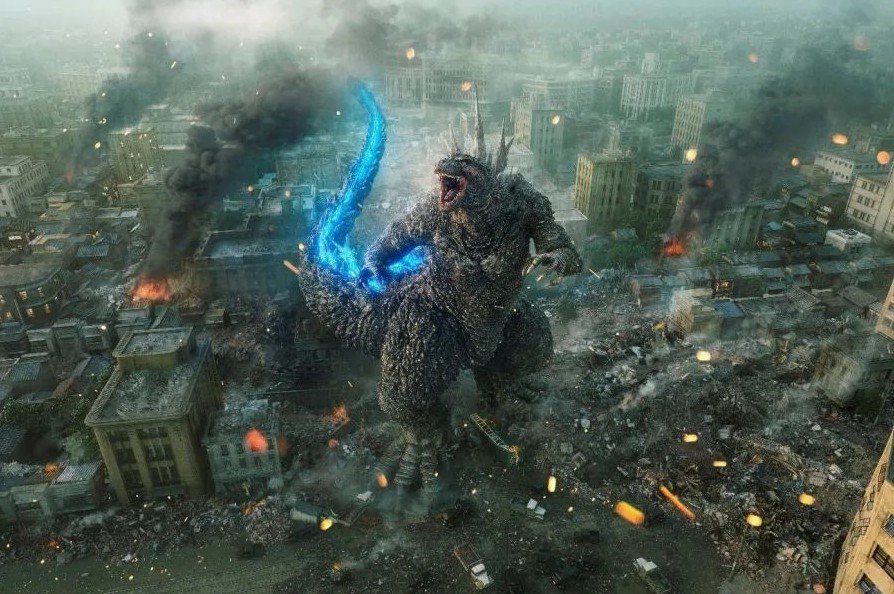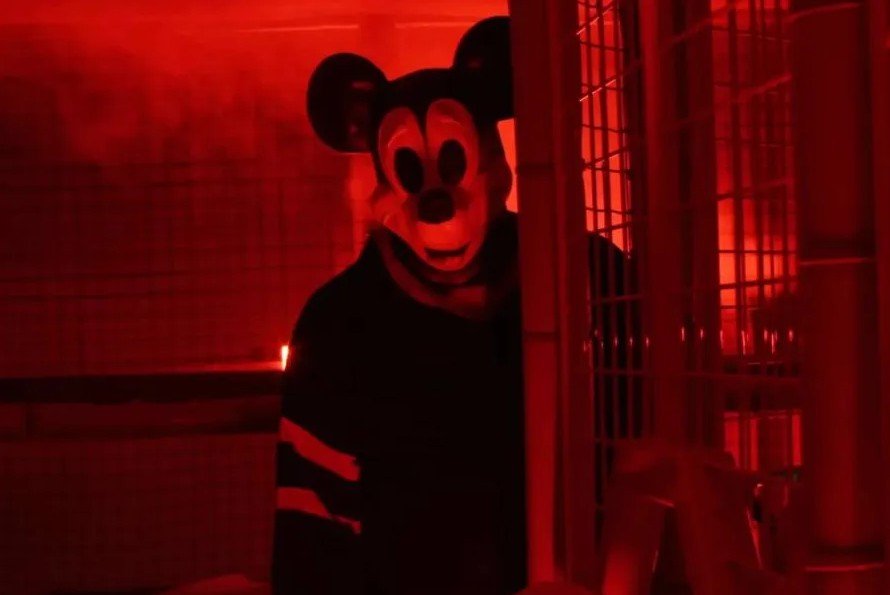Godzilla began as a metaphor for all the anguish, fear and paranoia that Japan felt after World War II and the subsequent nuclear attack it suffered. His first appearance on the big screen was in 1954 with the film Godzilla , where the monster was an unstoppable force that destroyed everything in its path. Such was the impact of the film that soon Godzilla would become an icon of Japanese culture. As time went by, the image of the kaiju would move away from the original concept of him, and he would even become a kind of antihero who would star in his own children’s program.
In the end in Japan it is considered that Godzilla has gone through three stages during his production saga: The Showa stage (where he goes from being a danger to being a defender) The Heisei stage (where he returns to his threat status) and the Millennium stage (where they give her a reconstruction of her story to make her more adult). On this side of the world we’ve seen our own versions of the monster since the 1956 adaptation Godzilla, King of the Monsters! (83%) , the entertaining but not very good Godzilla (1998) (16%) and more recently all the MonsterVerse productions ( Godzilla (2014) (74%) , Godzilla II: King of the Monsters (41%) Godzilla vs. Kong (85%) , Monarch: Legacy of Monsters (78%) . With Godzilla: Minus One (98%) we return to the origin of the monster and it seems that Takashi Yamazaki does so successfully.
What is ‘Godzilla: Minus One’ about?
At the end of World War II Kōichi Shikishima ( Ryûnosuke Kamiki ), a kamikase pilot, lands on a military base that is attacked by a giant creature, managing to survive that attack alongside Tachibana ( Munetaka Aoki ), the base’s main mechanic. . The pilot returns home only to discover that his parents have been killed in the bombing of Tokyo. With survivor’s guilt on his back, he tries to redeem himself and move on with his life. Shortly after, as a result of American nuclear tests, Godzilla mutates and gains powers, heading straight for Japan. With all the socio-political environment of the postwar Japan finds itself alone against this threat.
Returning to the metaphorical origin of the feelings of pain and anxiety resulting from war, Godzilla: Minus One is a film that left critics quite satisfied. Beyond how entertaining it can be to see a monster destroy an entire city on the big screen, it seems that it is the human and more personal story that gives it extra value. Where big Hollywood productions have failed Godzilla: Minus One hits the nail on the head. With an important emotional background, a wonderful visual spectacle (despite having a lower caliber CGI) and first-class performances, the film has won the approval of the majority of specialized critics.
What do the critics say about ‘Godzilla: Minus One’?
Katie Prout from Chicago Reader :
Godzilla is the draw, but equally at the wild, monstrous heart of this film is a surprisingly optimistic exploration of PTSD, shame, survivor’s guilt, and how we are all more than the worst things we’ve ever done.
Jorge Loser from Espinof :
With more social commentary or more adventure, the result achieves an unusual balance between emotional weight and the great spectacle of special effects lost in the current American blockbuster, managing to make the most of its limited resources, highlighting the latest installments of the monsterverse.
Kevin Maher from Times :
Godzilla’s three main set pieces in the middle and end of the film aren’t just a fun giant monster spectacle – they’re fantastic in the mechanics of thriller filmmaking, and do some of the best work in this series’ history. when creating the monster’s body.
Wendy Ide from Observer :
Godzilla Minus One takes an unashamedly nationalistic and sentimental approach, pursuing a redemption narrative in which Kōichi and Japan are offered the chance to re-enter the battlefield and regain some dignity and self-respect. It’s a testament to the quality of the writing and action direction that it never feels as cheesy or crass as you might expect.
Chris Plante from Polygon :
Minus One recreates that style of horror with human stakes and an intensely political message (…) the film is not a period piece only in aesthetic terms: the story itself seems like something preserved from the 1950s. Yamazaki imbues it with melodrama of a classic historical epic. His characters are romantics with a capital R, constantly making bold proclamations and great sacrifices, discussing heavy topics where modern characters would joke about shawarma.
David Jenkins from Little White Lies :
…Yamazaki’s film serves as a perfect entry point into the franchise and requires no prior knowledge of Godzilla. It’s tightly crafted in terms of structure, almost to the point of being airless, but it would be difficult to fault the final 45-minute showdown as anything less than an impressive feat from a filmmaker orchestrating and plotting the fine processes of an epic battle.
Simon Abrams from RogerEbert.com :
It has one of the most moving and nerve-wracking original scores of a recent Godzilla film. Tactically deployed silences and mood-setting background noises also punctuate and accelerate the already overwhelming on-screen action.
Kambole Campbell from Empire :
A refreshing, humanistic, and nostalgic reboot of the iconic monster franchise, Takashi Yamazaki’s Godzilla Minus One takes the atomic lizard back to his post-war roots…
Matt Donato from Bloody Disgusting :
Godzilla Minus One is a brilliant addition to the Godzilla canon that shines thanks to Yamazaki’s two-pronged approach. Godzilla’s action sequences are sprawling and devastating, capturing the miles-high imposing manner of the megamonster that makes us feel like ants under its feet. Then there’s the human element of it all, dressed in an erased period aesthetic that recalls terrifying times at the dawn of the nuclear age…
Katie Rifefrom IGN :
A heartwarming, spectacle-filled blockbuster, Godzilla: Minus One takes the king of the monsters back to his roots in post-World War II Japan. The story is character driven, but the monster scenes are exciting and effective.
Also Read: Spider-Man 4: They Reveal Alleged Cameos of Superheroes That We Will See in the Film





